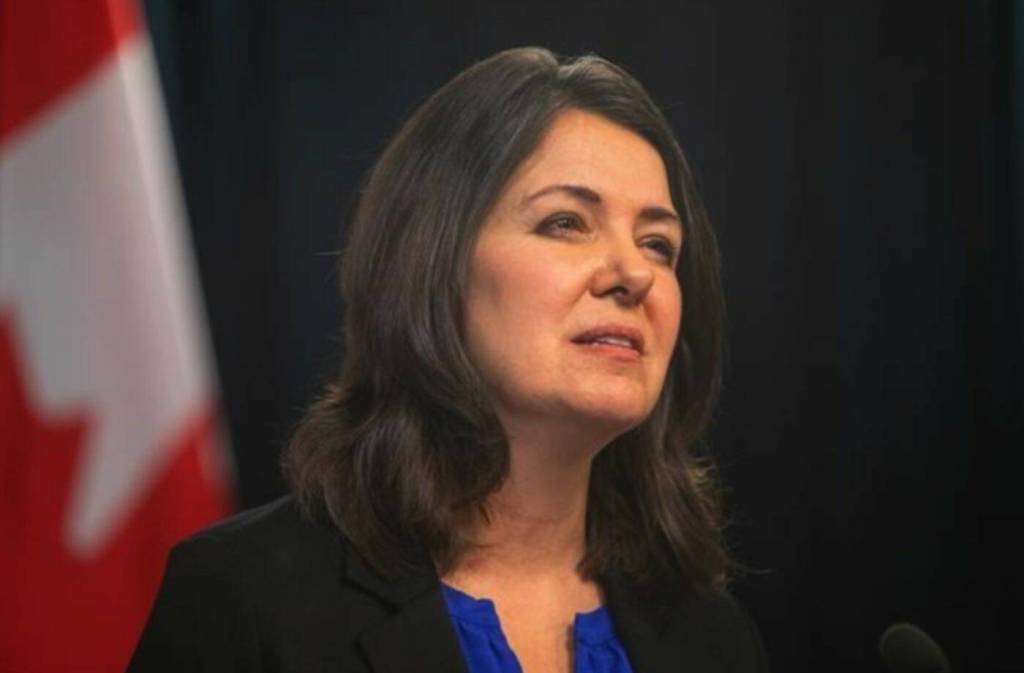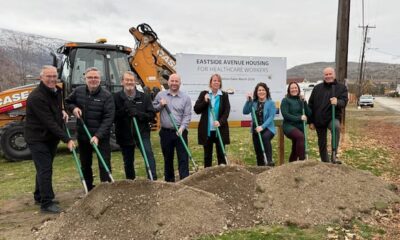Top Stories
Haisla Nation Opposes Alberta’s Pipeline Push in Urgent Meeting

UPDATE: A crucial meeting on November 25, 2023, between B.C.’s Haisla Nation, the District of Kitimat, and Alberta Premier Danielle Smith has intensified the debate over oil export proposals on B.C.’s North Coast. Local leaders presented starkly different views on future energy development, with the Haisla Nation firmly opposing oil pipelines while Kitimat took a more neutral stance.
In a joint statement, both communities celebrated their history of successful resource projects. However, the Haisla Nation reaffirmed its rejection of any oil pipeline or export facilities in its territory, a position it has held for over a decade. “We will never allow oil tankers on our coast,” stated Marilyn Slett, president of the Coastal First Nations-Great Bear Initiative. The Haisla’s opposition echoes strong sentiments first expressed during the contentious Enbridge Northern Gateway pipeline debate.
Kitimat Mayor Phil Germuth emphasized that while the District is not dismissing future proposals outright, any new project must align with environmental and community standards. “I’m not going to say anything is off the table,” Germuth remarked. However, he added, “If someone was to just dust off the old Northern Gateway and put that on the table, you’re probably going to get the same ‘no’ you had last time.”
The meeting, described by Germuth as a long-planned discussion unrelated to Alberta’s current pipeline proposal, focused on alternative collaborations, such as transporting goods like food products and ammonia through Kitimat. “We didn’t discuss any pipelines, but talked about everything else we might be able to do together,” he said.
Alberta’s government is pushing to expedite a new pipeline proposal to facilitate oil exports through B.C. ports, aiming to alleviate Canada’s reliance on U.S. markets. Recently, Alberta allocated $14 million for early-stage planning of this project, which may require expanding port facilities in Kitimat or Prince Rupert. This initiative includes a potential repeal of the federal Oil Tanker Moratorium Act, which currently restricts large crude oil tankers from the region.
As speculation grows, Prime Minister Mark Carney is expected to visit Calgary on November 27, raising expectations of a formal agreement on the proposed memorandum of understanding (MOU) between Alberta and Ottawa. The B.C. government has criticized the federal process, claiming it has excluded affected communities from discussions.
Premier David Eby has previously dismissed Alberta’s proposal as lacking a viable route and local legitimacy, labeling it “not a real project.” He has raised concerns regarding Indigenous rights and environmental protections, which remain hot-button issues in the region.
For many in B.C., the current pipeline discussions echo the divisive debates surrounding the Northern Gateway project, which aimed to transport 525,000 barrels of diluted bitumen daily from Bruderheim, Alberta, to Kitimat. The project faced significant opposition and was ultimately overturned in 2016 due to inadequate consultation with Indigenous communities. A plebiscite in Kitimat during 2014 showed that a majority of residents opposed Northern Gateway, a sentiment that continues to resurface as tensions rise over the new Alberta-Ottawa MOU.
Despite keeping options open, Mayor Germuth stressed that any future proposals would need to meet stringent environmental criteria and provide clear benefits to the local community. “We’re as concerned and protective of our environment as anyone else,” he stated. “But what is that? I don’t know.”
The situation remains fluid as local leaders and residents grapple with the implications of Alberta’s renewed push for oil exports and the ongoing impact on their communities and environment.
-

 Politics3 weeks ago
Politics3 weeks agoSecwepemc First Nation Seeks Aboriginal Title Over Kamloops Area
-

 World4 months ago
World4 months agoScientists Unearth Ancient Antarctic Ice to Unlock Climate Secrets
-

 Entertainment5 months ago
Entertainment5 months agoTrump and McCormick to Announce $70 Billion Energy Investments
-

 Lifestyle4 months ago
Lifestyle4 months agoTransLink Launches Food Truck Program to Boost Revenue in Vancouver
-

 Science5 months ago
Science5 months agoFour Astronauts Return to Earth After International Space Station Mission
-

 Technology3 months ago
Technology3 months agoApple Notes Enhances Functionality with Markdown Support in macOS 26
-

 Top Stories2 months ago
Top Stories2 months agoUrgent Update: Fatal Crash on Highway 99 Claims Life of Pitt Meadows Man
-

 Lifestyle3 months ago
Lifestyle3 months agoManitoba’s Burger Champion Shines Again Amid Dining Innovations
-

 Politics4 months ago
Politics4 months agoUkrainian Tennis Star Elina Svitolina Faces Death Threats Online
-

 Sports5 months ago
Sports5 months agoSearch Underway for Missing Hunter Amid Hokkaido Bear Emergency
-

 Politics4 months ago
Politics4 months agoCarney Engages First Nations Leaders at Development Law Summit
-

 Technology5 months ago
Technology5 months agoFrosthaven Launches Early Access on July 31, 2025




















